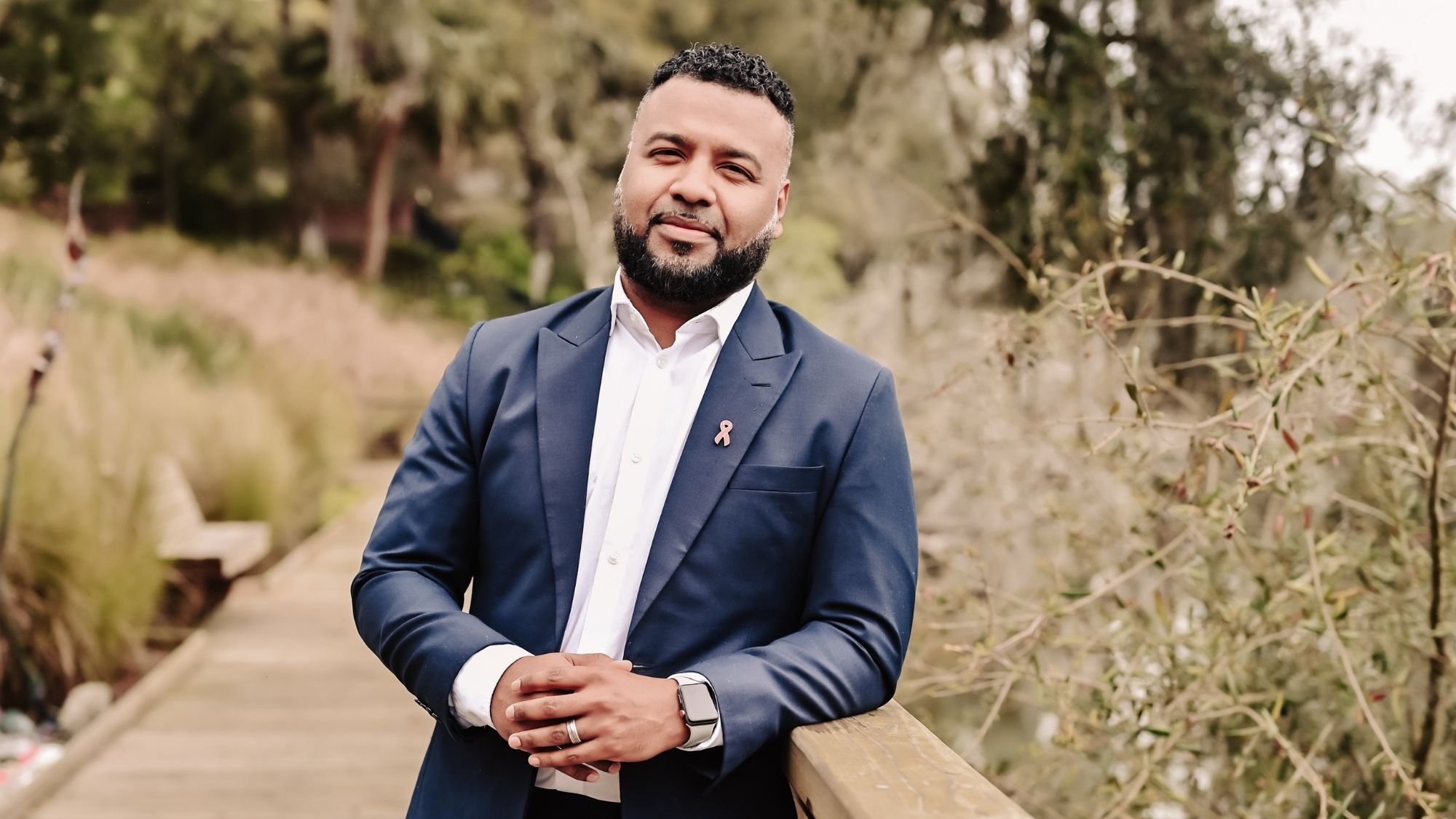Compassion in the Face of Crisis: Will Ramirez's Advocacy for HIV and Housing Justice

In our ongoing partnership with The Atlanta Journal-Constitution, CNP identified several inspiring Georgians who are making a difference in their community. These incredible individuals, whom identify as LGBTQIA+ or an ally, are featured in the digital and print version of AJC’s “Everyday Heroes” project, which launched in late-2023.
This place we call home is filled with ordinary people who accomplish extraordinary feats. Their selfless acts make this region so special – and they bring out the best in all of us. We hope you enjoy reading about ordinary people doing extraordinary work.
Will Ramirez
Growing up in the Bronx in the 1980s, Will Ramirez saw his mother, Alicia -- a devout Catholic and church volunteer -- show love and compassion to men who often were afflicted with a mysterious, deadly virus sweeping through New York City’s gay community.
Sometimes, the men would visit the Ramirez household for dinner or to socialize with his mom and dad; other times, after Sunday mass, Alicia Ramirez would serve them communion in their homes or at their hospital bedsides. Always, the men were considered kin.
“A lot of the people that we would meet, (my parents) would call family or ‘uncles,’” says Ramirez, a public health policy expert for the Southern AIDS Coalition. “They would become close friends to the family. But eventually, they would stop coming. And it would be a question for me as I was growing up: what happened? Her response was, ‘He's in a better place now.’”
“We ended up losing a lot of what we considered family members,” he says.
The example his mother set -- service and compassion and towards others -- stayed with Ramirez, through his neighborhood activism as a teenager and a tour of duty in the Navy. He taught history in an underserved middle school in San Antonio, Texas, and formed a nonprofit connecting members of the Dominican Republic diaspora to help bolster vulnerable communities in their home country.
Now, Ramirez is on a new mission: pushing public officials to provide more safe, affordable housing that can improve the health of poor people with HIV/AIDS in Atlanta, his adopted home, and other areas in the South.
“Housing is healthcare,” says Ramirez, public policy and advocacy director for the Southern AIDS Coalition. “It is a structural determinant of health. With stable housing, if you're a person living with HIV, you're able to maintain a good medical medication regime, you're able to acquire more positive mental health outcomes, and so on.”
Put simply, “if you're worried about where you're living,” Ramirez says, “then more than likely you're not going to be worried about taking the medication on time.”
In his current role, Ramirez lobbies Sun Belt lawmakers to increase their budgets for housing and neighborhood improvements. “The idea was to connect with folks the idea of how important it was for housing to be top of mind for people when they're thinking about population health.”
Unfortunately, “when engaging with Southern legislators, a lot of times, they don't want to hear about the happenings of people's lives that have led them to this moment,” he says. “They just want to know about money -- how much they're gonna save, or how much it's gonna cost the state, despite the fact that investing in prevention saves them money.”
Ramirez is also a liaison between the Atlanta mayor's office and Housing Opportunities for People With AIDS, a federal government agency aimed at improving housing for those with the illness. He says studies have confirmed that the “built environment” of a neighborhood -- its density, the number of sidewalks, tree canopy and other elements -- can have a measurable impact on residents’ health.
“Some of the most impacted communities in the South also happen to be the most impacted with poverty and a litany of other social determinants,” Ramirez says. “There's more interest rising around this idea that the way we build our cities, or the way we live in our communities has a direct impact on our health outcomes.”
Yet at the intersection of health, housing and HIV/AIDS, Ramirez says, race is never far from the surface.
“We're going to face stigma and discrimination, and then of course, racism in the South,” he says. “Racism is ever present -- not necessarily from individuals, but from the systems themselves, and where funding goes. (And) It's not just people living with HIV” who continue to suffer from policies like redlining and housing discrimination.
Tackling housing disparities and improving public health “are bigger fights, and that we need to engage,” Ramirez says. “But we need to be rational about how we engage in those fights.”
Like his mother’s decision to minister to AIDS patients and embrace them as whole human beings, Ramirez says he believes that public service includes fighting for people society may have forgotten, Ramirez says. That fight, however, must include empowering them, too.
“A fact that has been lost to so many folks nowadays is that these are people,” he says. “And when they're going through things, and they're impacted by systems and such, they're going to need people to speak up for them, or help them speak up for themselves. That's part of my calling.”
Even though he is a cisgender straight man who is not HIV-positive, “I am a person just like everyone else, and I deeply care,” he says. “If one community is being left behind, that we all are suffering.”
Joseph Williams is The Reckoning’s Race & Health Editor. A seasoned journalist, political analyst and essayist, Williams has been published in a wide range of publications, including The New York Times, The Washington Post, Politico, The Boston Globe, The Atlantic, and US News & World Report.
A California native, Williams is a graduate of the University Of Richmond and a former Nieman Fellow at Harvard University. He lives and works in metro Washington, D.C.







